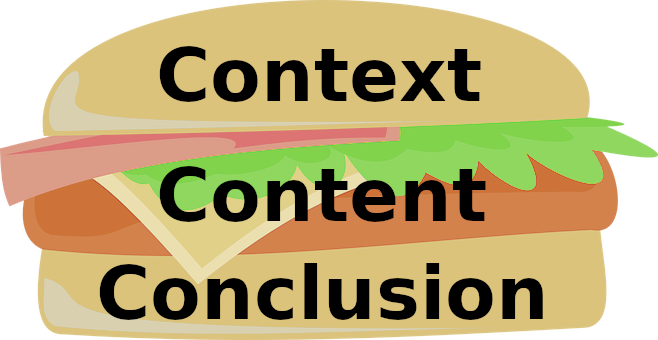
All scientists need to write — and we need to write a lot. Whether it’s a proposal, research article or a thesis: there is always some kind of writing project waiting to be completed. But scientific writing is pretty hard, so we tend to procrastinate on it — and suffer even more as a result. Though what if I told you that it’s possible to achieve a high level of writing output on a regular basis, avoiding the feelings of failure and guilt? These 11 tips show you how you can skyrocket your writing productivity.
Whether your main issue is procrastination, lack of organization, poor focus, or something else: below you will find ideas how you can overcome your difficulties and become a productive writer.
1. Set up a writing schedule and stick to it
When I’m writing, I write. And then it’s as if the muse is convinced that I’m serious and says: ‘Okay, okay. I’ll come.’
The best way to achieve a high writing output is to block off some time for writing every day. One or more hours in the morning, when your mind is fresh and your focus the highest, is usually most effective.
Allocating a concrete time window for writing is superior to just using a to-do list where you can fill your day with little busy tasks and postpone the start of writing until it’s time to go home.
Moreover, following a regular writing schedule helps you develop a writing habit so that your productivity won’t depend on your willpower. As many great writers report, if you regularly sit down to write, your mind will get used to it and collaborate with you on your goal instead of sabotaging it.
2. Develop a starting ritual
A starting ritual for your writing sessions helps you avoid procrastination, get focused and settle into writing mode fast.
For example: get into your office, make yourself a tea and sit down to write. If you repeat this sequence for a month or two — and don’t drink (this particular sort of) tea otherwise — the mere act of preparing your tea will get you into writing mood, and your thoughts will automatically start to circle around your writing project.
An especially effective starting ritual is a 10-minute freewriting session that acts as a brain dump: set a timer and write down everything and anything that crosses your mind. This will clear and calm your mind and warm you up for writing.
3. Improve your focus
You need a good ability to focus so that you can sustain steady productivity throughout your writing sessions. A simple method to get and stay focused consists of limiting your digital distractions in the morning and late in the evening, employing regular breaks (every 30 minutes!) and refocusing through short meditations whenever needed.
4. Avoid multitasking
 By avoiding multitasking you save considerable time and mental energy. Psychological research shows that it is not possible to focus simultaneously on two or more tasks. Rather, our attention is switching between the tasks — and each switch costs you precious time, concentration, and even accuracy!
By avoiding multitasking you save considerable time and mental energy. Psychological research shows that it is not possible to focus simultaneously on two or more tasks. Rather, our attention is switching between the tasks — and each switch costs you precious time, concentration, and even accuracy!
If you want to improve your writing efficiency, separate the different processes involved in writing: reading the literature, writing a first draft, revising for content, polishing the language, etc.
5. Design your environment
Create a writing environment that will supports your productivity. Clear the clutter, remove distractions as well as materials unrelated to your current project, and place useful resources and tools at hand. It will be much easier to start and keep writing and not so tempting to divert to some other activities.
6. Compose a fat outline
Before you start drafting your text, create an outline. But instead of the typical bullet points containing only short keywords, write a whole sentence for each point you want to cover. This gives you a better picture of where the text is heading and helps you get into writing fast, avoiding procrastination and writer’s block.
If you find it hard to outline your text before writing, try out some strategies for the bottom-up writer type: brainstorm your ideas in a MindMap before attempting to create an outline and structure your already written texts with the help of subheadings.
7. Learn to structure your paragraphs
 Follow the hamburger paragraph structure and it will be easier to write clear and comprehensible texts. The key is to include one idea per paragraph — by writing one paragraph for each point from your fat outline.
Follow the hamburger paragraph structure and it will be easier to write clear and comprehensible texts. The key is to include one idea per paragraph — by writing one paragraph for each point from your fat outline.
You might even use the statements from the fat outline as the first topic sentences in each of your paragraph! This is not only efficient, but also a great help against perfectionism and writing blockades!
8. Track your progress
The simple act of measuring your progress will improve your motivation, keep you on track with your work and help you avoid distraction. You don’t need to set a goal — if that makes you feel stressed and under pressure.
Instead, just track the number of words you write per day. Or the number of hours you spend in focused work. Or any other measure that is relevant for you. And note the daily score in an overview table (in your research journal, Excell sheet or a dedicated app). Tracking your achievements is a great support when you try to establish a productive habit.
9. Give a talk
Before you start writing up a manuscript, present your research in a lab meeting or even more informally in front of a few of your colleagues. This helps you crystallize your ideas, structure your results, and spot gaps and errors in your reasoning.
You try out something and get immediate feedback instead of pondering endlessly how you should go about it. As a bonus, talking about your research might give you a motivation boost and get you excited again about your project.
10. Find an accountability partner

Find someone who will hold you accountable for achieving your goals and sticking to your plans. Reciprocate this service and it will provide you with additional motivation and inspiration.
This (mild) social pressure of reporting your progress to someone is often enough to skyrocket your productivity! But if you need more, sit down with your partner and devise a penalty.
Another form of accountability is provided by a writing group: if you have several colleagues who are struggling with writing, you can gather regularly for joint writing sessions. You can also join Writing Scientist’s monthly co-writing sessions. And/or use a co-working app like Focusmate and write together with a virtual partner located anywhere on the globe.
11. Get & give peer feedback
Instead of agonizing over a difficult passage, ask a colleague for their feedback: what is the problem and how could it be improved? This reduces your suffering and saves a lot of time. Return the favor and discover other ways to formulate and structure, which will make you a more flexible writer. Moreover, regular peer-feedback will help you develop your academic writing skills. You can find peers for reciprocal feedback in our Facebook group dedicated to academic peer feedback.
Take action!
Now think about your current situation: which of these tips might make the biggest difference in your writing productivity? What is the one thing you can do such that by doing it everything else will become easier or unnecessary? Start with this one tip. Once it is implemented and you can see the first benefits, return to the list and pick another one.
Do you know hacks or techniques that help you increase your writing productivity? Please, share them in the comments!
This is wonderful and cogent advice. I am glad to be associated with you and your effort.
Thank you, Gerry!
Wonderful guide for academics and writers generally. I now see my flaws.
Thank. It gives me motivations and guideline how to improve my writing thesis following disciplines.